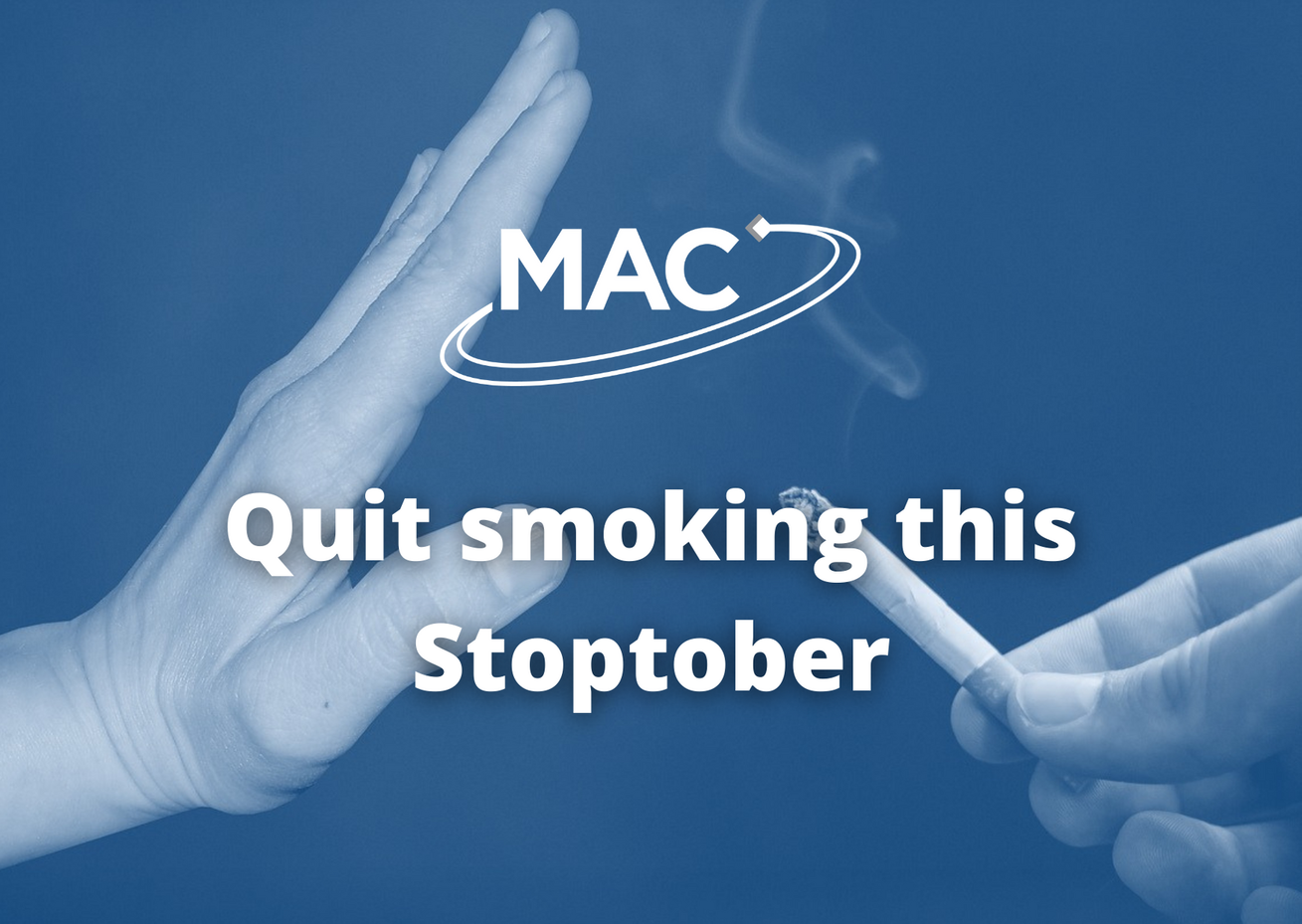This October is Stoptober and, for smokers, quitting is one of the best things you can do for your health!
Like previous campaigns, this year’s Stoptober campaign is based on evidence that if a smoker can quit for a month, then they are five times more likely to quit for good.
Tabaco smoke contains over 5000 chemicals including nicotine which is highly addictive, making it difficult for smokers to quit. Cigarettes and other tobacco products harm your body because of the tar and other chemicals inside of them and can cause heart attacks, strokes, and cancer. Smoking can also damage your hair, skin, and sight. On average, smokers live 10 years less than non-smokers.
Smoking is also dangerous for the people around you, especially children and pregnant women, through passive or second-hand smoking. Children who live with someone who smokes inside the house are at a much higher risk of developing breathing problems like asthma.
Once you quit, however, your health will improve almost immediately.
- After 20 minutes, your pulse returns to normal.
- After 8 hours, the levels of nicotine and carbon monoxide in your body reduce by half with oxygen levels beginning to return to normal.
- After 24 hours, the carbon monoxide has left your body completely and, in 48 hours, so has the nicotine.
- After 72 hours, breathing becomes easier.
- Between 2-12 weeks, the blood circulation around your body improves.
- 3-9 months, your lung function increases by 10%.
- After one year, your risk of having a heart attack is half of someone who still smokes.
- After 10 years, your risk of lung cancer falls to half of that of a smoker.
- After 15 years, your risk of heart attack is the same as someone who has never smoked.
Although quitting smoking may be extremely difficult, there is a wealth of support on offer through the NHS, your own friends and family, other participants, and social media channels. Follow MAC Clinical Research on Facebook, Twitter, and Instagram for more Stoptober updates and advice and for information on our clinical trials.




